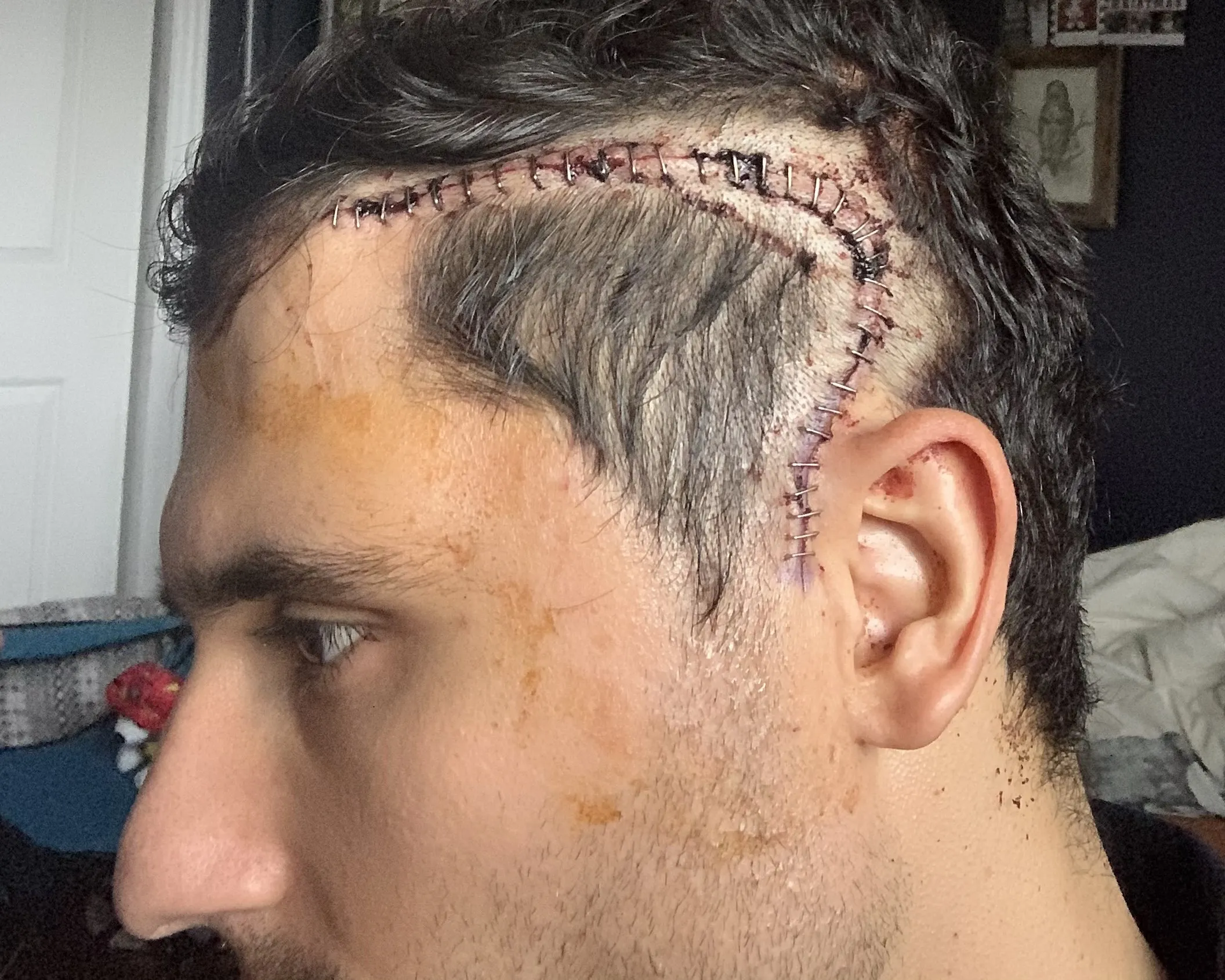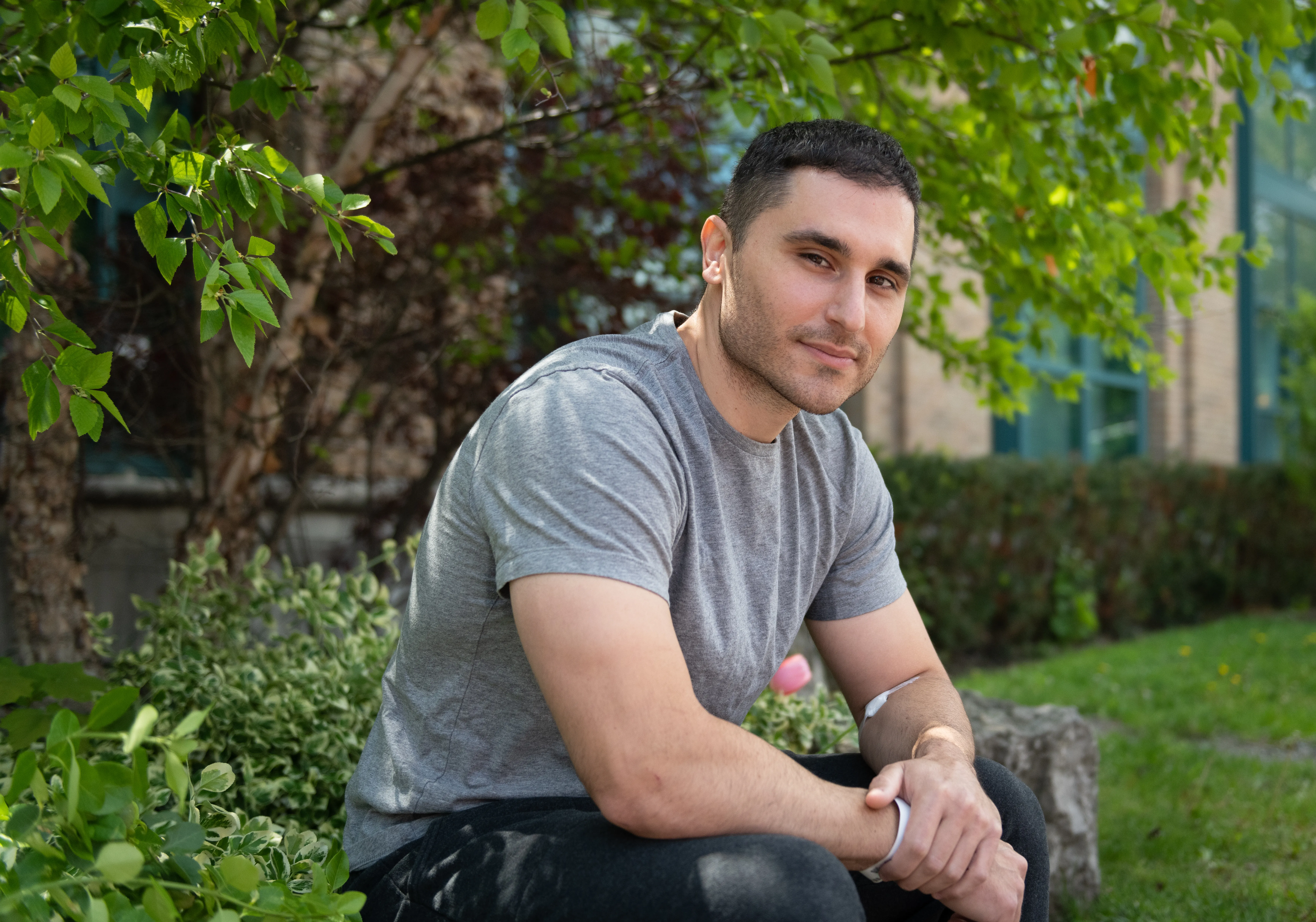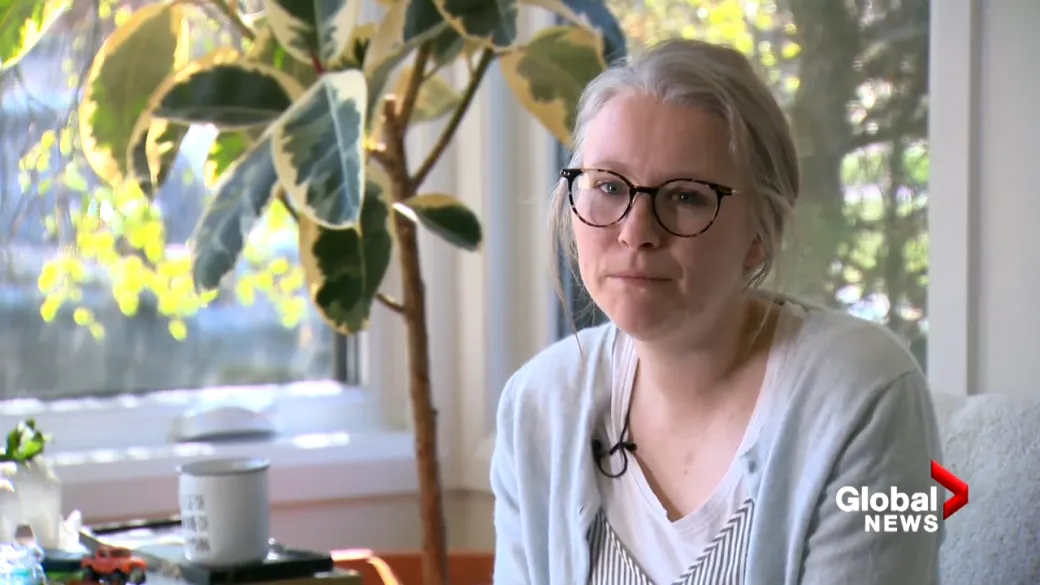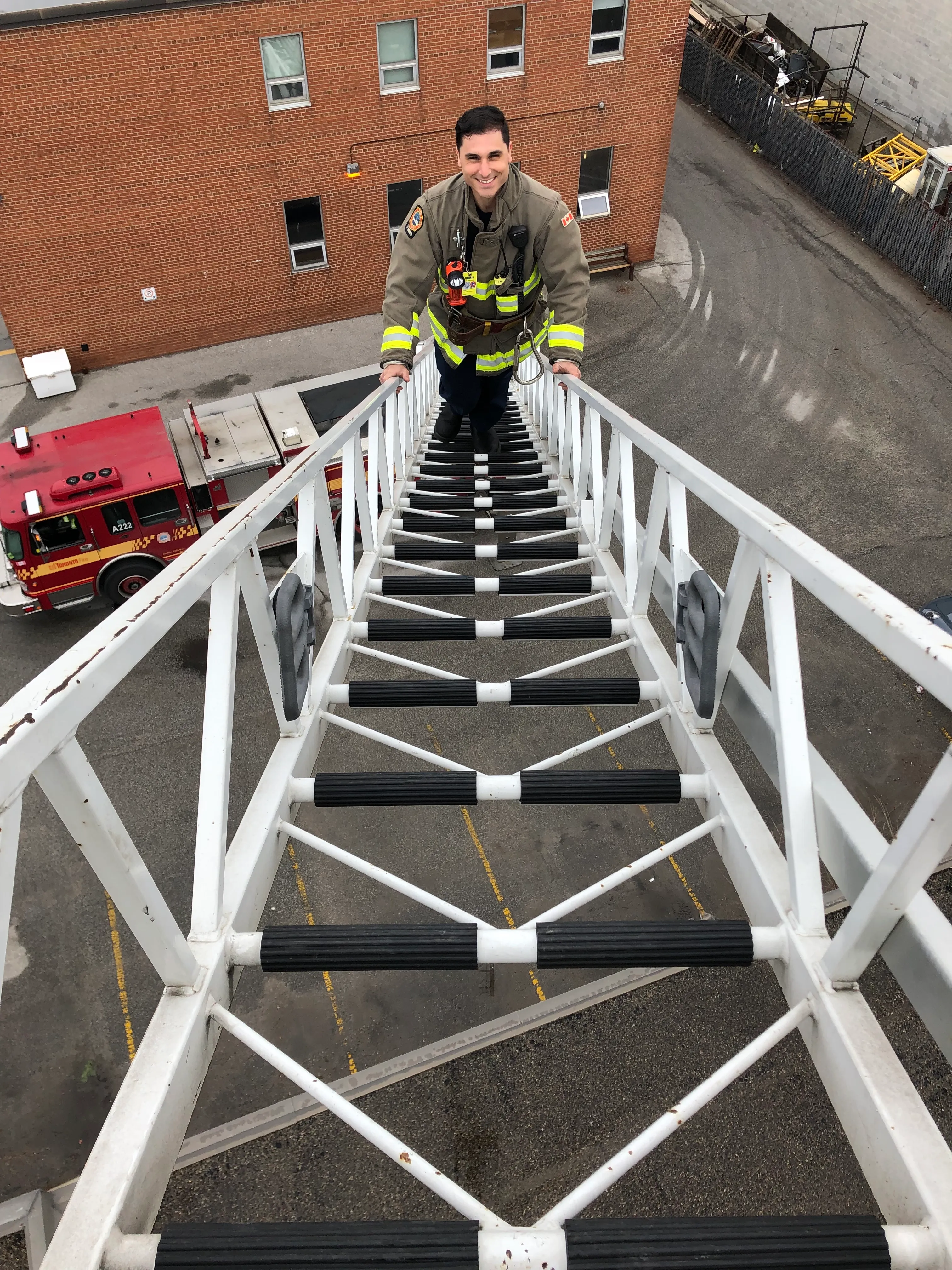

In December 2020, Steven Stefanidis, a 36-year-old firefighter from Toronto, was responding to a medical call when he blacked out and had a seizure.

After being assessed by first responders, he was taken to the hospital, where an MRI revealed a tumour. It was diagnosed as a Grade 2 IDH-mutant glioma, an incurable form of brain cancer.
It came as a complete shock, Stefanidis recounted to Global News.
“Here I was in my early 30s, living my best life with a dream job when I suddenly had a seizure. I can’t describe what it was like to be told that I had an incurable brain cancer,” he said.
“At first I was in shock and I wasn’t digesting the information because it’s heavy. But overall, the neurosurgeon that I met was very relaxed and confident and I trusted him and he put me in a good situation. I didn’t freak out or anything. I knew I was in good hands at the moment.”
He later underwent surgery to alleviate his symptoms, which took place one week after his diagnosis.
 View image in full screen
View image in full screen
Stefanidis is one of the thousands of Canadians diagnosed with brain and spinal cord cancer every year, according to the Canadian Cancer Society. The type he has, gliomas, is the second-most common cancer among Canadians under 40 and the second-leading cause of cancer-related deaths in this age group.
And IDH-mutant glioma usually arises in people in their 30s and 40s, when they are in the prime of their lives — working and raising families, explained Dr. Mary Jane Lim-Fat, neurologist and neuro-oncologist at Sunnybrook Health Sciences Centre.
“There is no current cure for diffuse gliomas in adults,” Lim-Fat told Global News. “So our best treatments, which up until now have consisted of radiation and chemotherapy, only delay the time until which the tumour grows back. It’s been very challenging to find better treatments for our patients.”
But there is hope. A new oral medication called Voranigo has been shown to target brain tumours, and in Phase 3 clinical trials, to “significantly” slow their growth. Stefanidis participated in these clinical trials at Sunnybrook Health Sciences Centre in Toronto, and he said the treatment has been effective for his cancer.
 View image in full screen
View image in full screen
And now it has officially been approved in Canada.
On Tuesday, Health Canada announced the approval of Voranigo, the first targeted therapy for treating Grade 2 isocitrate dehydrogenase (IDH)-mutant glioma in adults and pediatric patients aged 12 and older, following surgery. It is Canada’s first oral targeted treatment for brain cancer.
Voranigo was studied in a large-scale, randomized, placebo-controlled clinical trial with patients from around the world, including Canada, from January 2020 through February 2022.
The results of the Phase 3 clinical trials were published in June 2023 in the New England Journal of Medicine, and show promising results, Lim-Fat said.
“This new drug essentially is a brain penetrant oral drug that patients can take by mouth that alters the function of that mutant protein. So in doing that, it slows down the growth of the tumour, stabilizes it in some instances, and even decreases the growth or shrinks the tumours in some cases,” she said.
So what exactly does this mean?
Gliomas are difficult to treat and often progress to more aggressive forms of brain cancer, partly due to the blood-brain barrier. This protective layer shields the brain from harm but also makes it challenging for therapies to penetrate and effectively target tumours, Lim-Fat explained.
Due to the blood-brain barrier, the current treatment for gilomas involves a combination of surgery, followed by radiation and chemotherapy. While these treatments can temporarily halt the tumour’s growth, Lim-Fat noted that it eventually returns.

But Voranigo is specifically designed to cross the blood-brain barrier and reach the brain to target mutated enzymes that are causing the cancer.
Phase 3 clinical trial results show that the drug more than doubled the time before the tumour grew back in patients. It also delayed the need for interventions like chemotherapy and radiation, which come with severe side effects.
“These results in and of themselves are very encouraging and showed that this drug was actually quite good at delaying that progression in these patients.”
Now that Voranigo is approved in Canada, Stefanidis said he hopes the medication can help others who are in the same situation.
After taking time off work, he is now back on the job as a firefighter and has even started traveling, exercising and hiking again.
“I feel like a regular, normal, healthy adult. I’m slowly back to my regular day-to-day routine. I’m back to work now, fully back on the fire trucks responding. And it feels great to be back on with the same crew,” he said.
“I just recently had my first vacation in July of this year. And it felt amazing just to get out there. And that’s another thing about this medication. It’s not something where I had to stay within my area because I could only get the treatment there. I’m able to carry this with me wherever I go and use it as like a mobile treatment,” he added.
 View image in full screen
View image in full screen
Stefanidis said he takes it once every morning, similar to a multivitamin, and keeps track of it in his diary for dosage and time.
Lim-Fat expressed that the oncology community is truly excited about the approval of this drug in Canada, saying, “We haven’t had a breakthrough like this in terms of a new drug in about 20 years.”
However, she noted that some questions remain. Doctors still don’t know the long-term survival outcomes for patients taking the drug, or whether certain groups of patients might respond better or longer to the treatment.
“But nonetheless, we think it is a major breakthrough and major advancement in terms of providing more options for patients,” she said.


